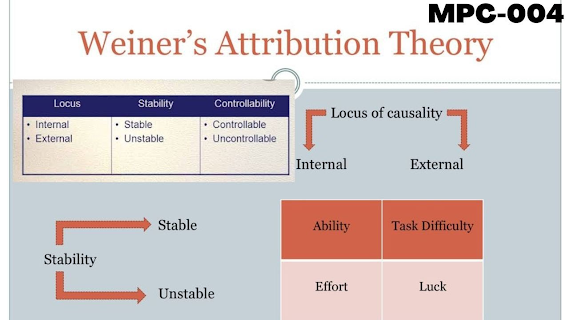In today's blog, we will talk about how attrition theory works in Sister Carrie.
Theory:
Attribution theory, developed by psychologist Fritz Heider and later expanded upon by Bernard Weiner, examines how individuals attribute causes to events and outcomes in their lives. Attributions involve making judgments about the origin of both positive and negative events. These judgments can be categorized based on three key dimensions:
Internal vs. External. This dimension concerns whether individuals attribute the cause of an event to factors within themselves (internal) or to factors outside themselves (external).
The Stable vs. Unstable dimension refers to whether individuals believe the cause is relatively stable over time (stable) or subject to change (unstable).
Lastly, the Controllable vs. Uncontrollable dimension refers to whether individuals perceive the cause to be relatively stable over time (stable) or subject to change (unstable): This dimension assesses whether individuals perceive the cause as controllable or uncontrollable.
Let's now analyze how Carrie from "Sister Carrie" made cognitive attributions that affected her emotions and motivations:
Internal vs. External:
For instance, when Carrie succeeded in her acting career, she frequently attributed it to her talent, hard work, and decisions. This boosted her self-esteem and led to positive emotions such as confidence and pride.
Impact: Internal attributions for her success reinforced her motivation to excel in her acting career. They provided a sense of agency and control over her destiny, driving her to pursue her goals with determination.
Example: However, when faced with setbacks or failures, Carrie sometimes made external attributions. If a poor performance occurs, she may attribute it to external factors such as unfavorable casting decisions or industry trends.
This can cause feelings of frustration or helplessness. These attributions may temporarily reduce her motivation, especially if she feels little control over the external factors.
Stable vs. Unstable:
Example: If Carrie believes she consistently performs well in acting, this could boost her self-confidence and motivation to continue her career.
Impact: Stable attributions can enhance long-term motivation, as individuals are more likely to persist when they believe their abilities are enduring.
For example, believing that she is consistently good at acting can help Carrie focus on her goals and persist in pursuing her career. Alternatively, if she viewed her success as unstable (i.e., based on luck or temporary circumstances), she may lack the motivation to consistently maintain it.
Impact: Unstable attributions can cause fluctuations in motivation, as individuals may not feel obligated to work as hard when they consider their success as temporary.
Controllable vs. Uncontrollable:
If Carrie attributed her success to her own controllable factors of efforts and choices, it would inspire her to work harder and make strategic decisions for developing and enhancing her career. If Carrie perceives success as uncontrollable due to factors like luck or industry conditions, this could undermine her motivation by making her feel powerless to influence her destiny. This can lead to a decrease in motivation, especially if she feels she has limited control over her circumstances.
Summary: Carrie's cognitive perceptions in "Sister Carrie" significantly affected her emotions and motives. Her perceptions, such as internal and external factors, stable and unstable, and controllable and uncontrollable facets, shaped her sense of self and influenced her determination and persistence in pursuing her goals in the acting world.

Comments
Post a Comment